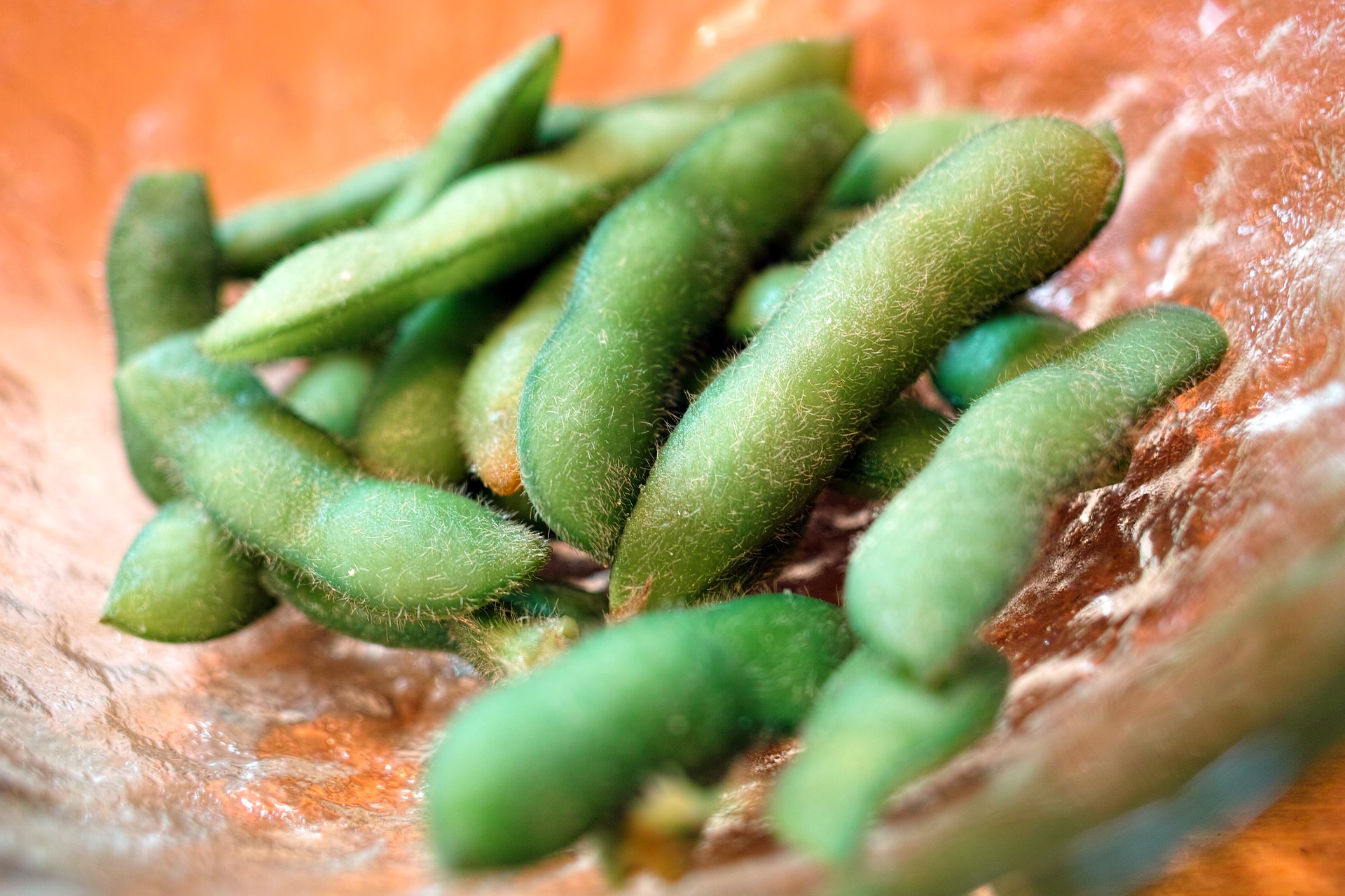Anyone who’s munched through a bowl of edamame at their favourite Japanese restaurant knows how addictive these young green soybeans are. But are they good for you? There is ongoing debate about the benefits of soy, which can mimic estrogen to both positive and negative effect. High in protein and fibre and low in fat, edamame have definite nutritional value (more than other soy products), but should be eaten in moderation.
NUTRITIONAL BENEFITS
- the only vegetable that contains all nine essential amino acids, making it a complete protein source, similar to meat or eggs
- edamame are an excellent source of B-complex vitamins, which help metabolize carbohydrates, proteins, and fats
- an ideal source of necessary minerals, including calcium and iron
FOOD FOR THOUGHT
The largest soybean producer by far is the U.S., followed by Brazil. Until very recently, almost all edamame was imported, but in the last few years, some U.S. farmers have started to produce edamame on a larger scale. As consumers continue to want non-meat protein sources, domestic production in North America is likely to increase.


